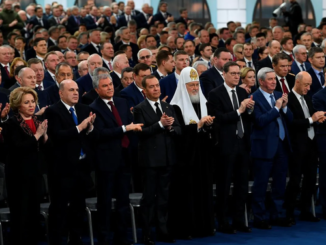
In a significant blow to India’s energy landscape, Nayara Energy—operator of the country’s second-largest refinery—has experienced a dramatic plunge in crude oil imports this August, hitting historic lows. This downturn is largely attributed to the European Union’s latest sanctions package targeting Russian oil and its derivatives, compounded by U.S. President Donald Trump’s imposition of tariffs on India for continuing to purchase discounted Russian crude. As global geopolitical tensions escalate, Nayara’s challenges highlight the vulnerabilities in India’s reliance on Russian oil supplies, which have been a cornerstone of its energy security strategy since the Ukraine conflict began.
Background on Nayara Energy and Its Russian Ties
Nayara Energy, formerly known as Essar Oil, operates a massive 400,000-barrel-per-day refinery in Vadinar, Gujarat, making it India’s second-largest after Reliance Industries’ Jamnagar complex. The company is 49.13% owned by Russia’s state-controlled Rosneft, with the remaining stakes held by commodity trader Trafigura and Russian investment firm UCP. This ownership structure has placed Nayara squarely in the crosshairs of Western sanctions aimed at curbing Russia’s war economy.Since 2022, India has emerged as one of the top buyers of Russian oil, capitalizing on steep discounts amid the EU’s ban on direct imports from Russia. Nayara has been particularly reliant on Russian grades like Urals and Sokol, processing them into refined products for export. However, this model is now under severe strain as sanctions tighten and payment mechanisms falter.
The Hammer of EU Sanctions
The EU’s 18th sanctions package, unveiled on July 18, 2025, marks a pivotal escalation. It prohibits imports of refined petroleum products derived from Russian crude, even if processed in third countries like India. Additionally, it imposes asset freezes, shipping and insurance restrictions, and lowers the price cap on Russian oil. For Nayara, these measures have disrupted supply chains, export markets, and financial operations.
Crude shipments to Nayara have plummeted this month, with imports expected to be the smallest on record. Sources indicate the refinery has reduced its processing runs to 70-80% capacity, down from near-full utilization earlier in the year. Payment hurdles have intensified, prompting Nayara to demand prepayments or letters of credit for fuel exports—a shift that has deterred buyers and shippers.
The sanctions have also led to operational chaos: global tanker companies are halting cargo loadings from Nayara’s terminals, and European entities are barred from providing services like insurance or financing.
In response, Nayara has pivoted to new markets, shipping its first diesel cargo to China since 2021 and exporting gasoline for the first time post-sanctions.
Lenders, including India’s State Bank of India, have grown cautious, halting transactions due to sanctions risks.
The company’s CEO resigned shortly after the sanctions took effect, underscoring internal turmoil.
Nayara has condemned the EU measures as an “unjust attack on Indian sovereignty,” arguing they threaten the country’s energy security without significantly impacting global supplies.
Analysts from Rystad Energy estimate that the sanctions could deprive Europe of around 230,000 barrels per day of Indian refined products, though the overall market disruption remains limited.
Trump’s Tariffs Add Fuel to the Fire
Compounding Nayara’s woes are U.S. actions under President Trump, who has targeted India for its Russian oil purchases. On August 6, 2025, Trump signed an executive order imposing an additional 25% tariff on Indian goods, effective immediately, with another 25% set to kick in on August 27—potentially totaling 50% on many exports. This move aims to deter countries from bolstering Russia’s economy through oil trade and force a reduction in imports, funding Moscow’s military efforts.
Trump’s administration views India’s record $52 billion in Russian oil imports last year as undermining Western efforts to isolate Russia.
While the tariffs are broad-based, they indirectly pressure refiners like Nayara by straining U.S.-India trade relations and raising costs across sectors. India has pushed back, emphasizing economic necessities and diversifying suppliers to include U.S. and Brazilian crude, but insists on maintaining Russian ties.
Ongoing trade talks could lead to a deal by October, potentially easing tariffs, but escalation remains a risk.
Social media discussions on X reflect investor concerns, with users noting potential relaxations in sanctions if India reduces reliance, and broader economic impacts like a weakening INR.
Broader Implications for India’s Energy SectorWhile Nayara bears the brunt, the ripple effects could extend to other Indian refiners. Reliance Industries, another major processor of Russian oil, may face scrutiny, though it has not been directly sanctioned yet.
India’s overall Russian oil imports are projected to hit a record 2.2 million bpd in August, but discounts are narrowing, making alternatives more attractive.
Economists predict a manageable GDP hit of 0.15-0.2% from Trump’s tariffs, but sectors like textiles, autos, and pharmaceuticals could suffer.
India is responding by accelerating free trade agreements with Australia, the UAE, and the UK, and expanding supplier diversity to over 40 countries.
As the EU and U.S. intensify pressure, Nayara’s plight underscores the geopolitical tightrope India walks in balancing affordable energy with international alliances. The coming months will test whether diplomacy can mitigate these disruptions or if a strategic pivot away from Russian oil becomes inevitable.
How does this relate to the “TotalEnergies Wins Legal Battle to Shut Down North Sea Oil Fields?
The Net Zero energy policies of the UK, EU, and Canada have been doing a great job of implementing deindustrialization and a fiscal collapse, and the sanctions on Russian oil will only compound the financial collapse about to happen in the UK. I did not see the Net Zero devastation getting help from sanctions that usually don’t work. And as Irina Slav has said, “Sanctions Don’t work as Intended”, and in this case, they are about to shoot Ed Miliband in the foot or higher with higher prices.
Is Oil & Gas Right for Your Portfolio?
Crude Oil, LNG, Jet Fuel price quote
ENB Top News
ENB
Energy Dashboard
ENB Podcast
ENB Substack






